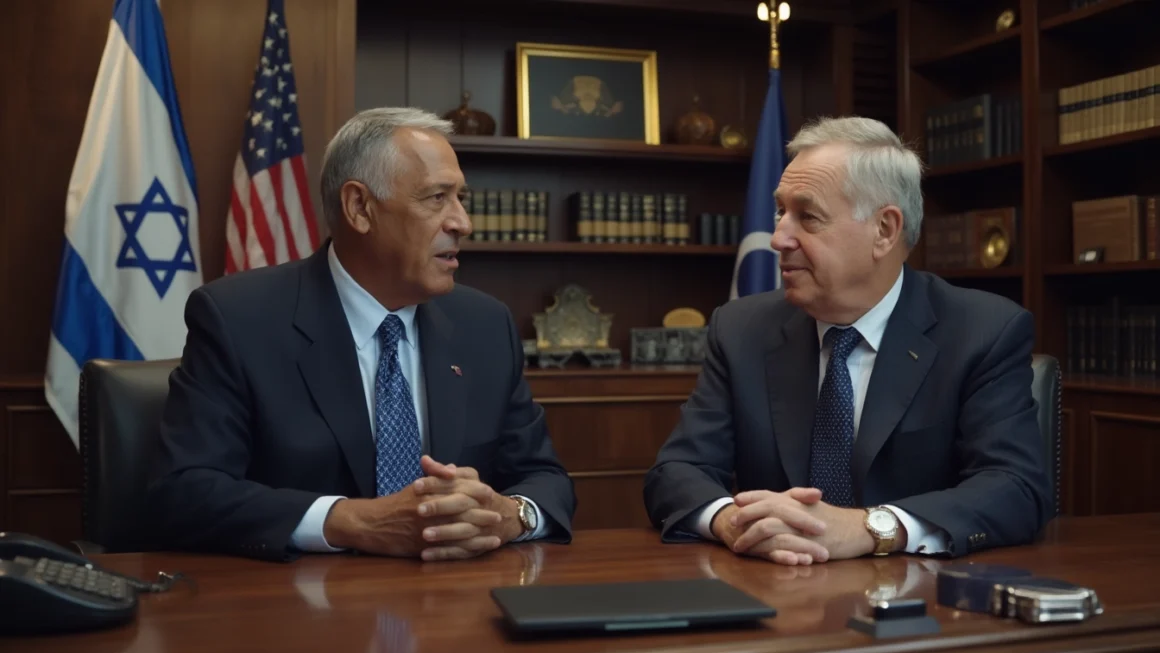US-Israel Defense Relations Strengthen Amid Regional Tensions
Table of Contents
In a significant development in international defense cooperation, US Secretary of Defense Lloyd J. Austin III engaged in a crucial telephone conversation with Israeli Minister of Defense Yoav Gallant. This high-level communication underscores the ongoing commitment between the United States and Israel to maintain strong bilateral ties, especially in matters of regional security and defense.
Key Points of Discussion
The call between Secretary Austin and Minister Gallant covered several critical areas:
- Reaffirmation of the US-Israel defense relationship
- Assessment of current regional security challenges
- Strategies to counter threats from Iran and its proxies
- Commitment to Israel’s qualitative military edge
Strengthening Bilateral Defense Cooperation
Both leaders emphasized the importance of the strong defense partnership between their nations. This relationship has been a cornerstone of US foreign policy in the Middle East for decades. The conversation served to reinforce this alliance, particularly in light of evolving regional dynamics.
Secretary Austin reiterated the United States’ unwavering commitment to Israel’s security. This commitment extends to ensuring Israel maintains its qualitative military edge in the region, a longstanding policy of the US government to support Israel’s defense capabilities.
Addressing Regional Security Challenges
A significant portion of the discussion focused on the current security landscape in the Middle East. Both officials expressed concerns about the various threats facing the region, with particular emphasis on the activities of Iran and its proxy groups.
The dialogue highlighted the need for continued vigilance and coordinated efforts to counter these threats. This approach aligns with broader US strategies in the Middle East, which aim to promote stability and deter aggression from hostile actors.
Iran and Proxy Threats
The conversation between Austin and Gallant placed special emphasis on the challenges posed by Iran and its affiliated groups. This focus reflects the ongoing concerns both nations have regarding Iran’s regional activities and nuclear ambitions.
Strategies to counter these threats likely included discussions on intelligence sharing, joint military exercises, and potential diplomatic initiatives. The US and Israel have long collaborated on addressing Iranian influence in the region, viewing it as a shared security priority.
Implications for Regional Stability
This high-level dialogue carries significant implications for regional stability. By reaffirming their defense partnership, the US and Israel send a strong message to potential adversaries about their unified stance on security matters.
Such cooperation also has broader implications for other US allies in the region. It reassures partners of continued American engagement in Middle Eastern affairs, despite shifting global priorities.
Future Outlook
The call between Secretary Austin and Minister Gallant sets the stage for continued close cooperation between the US and Israel on defense matters. It suggests that both nations are aligned in their assessment of regional threats and are committed to working together to address them.
Looking ahead, this reinforced partnership may lead to:
- Enhanced military technology sharing
- Joint training exercises
- Coordinated diplomatic efforts in the region
- Increased intelligence cooperation
Global Context and Automation in Defense
In an era of rapidly evolving global threats, the importance of efficient and effective defense strategies cannot be overstated. Modern defense systems increasingly rely on advanced automation to enhance decision-making processes and response times. Automation tools play a crucial role in streamlining defense operations, from logistics management to threat detection systems.
Conclusion
The telephone conversation between US Secretary of Defense Lloyd J. Austin III and Israeli Minister of Defense Yoav Gallant represents a significant moment in US-Israel relations. It reaffirms the strong bond between the two nations, particularly in the realm of defense and security.
As regional challenges persist, this partnership will likely continue to play a crucial role in shaping Middle Eastern geopolitics. The commitment to Israel’s security and the focus on countering threats from Iran and its proxies indicate that this alliance remains a cornerstone of US foreign policy in the region.
Moving forward, observers can expect to see continued close cooperation between the US and Israel, with potential impacts on regional stability, diplomatic initiatives, and military preparedness in the face of evolving security challenges.




